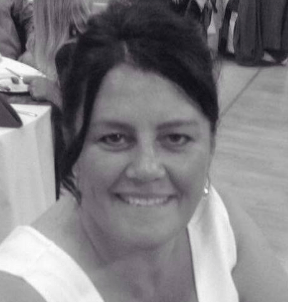This will hurt a bit. Half of dentists at ‘elevated risk’ of fraud
September 2007 • The Daily News

Michael Arsenault still seems shaken by the revelations.
Two years ago, the Halifax dentist first caught wind that something was amiss in his practice – a call from Blue Cross asking about an insurance claim. By the time a forensic expert and police were through, Arsenault learned he was the alleged victim of fraud and out tens of thousands of dollars.
“I’m trying to put it all behind me and move on,” he said.
For four years, Arsenault said he implicitly trusted his receptionist with money. Now, that woman, Sonya Lee Green, is facing one charge of fraud over $5,000. The 37-year-old is due to enter a plea in Halifax provincial court on Oct. 3, along with her co-accused, 41-year-old Heather Marie MacDonald.
In total, Arsenault said he’s probably lost close to $100,000, if you count lost time, stress and aggravation. Arsenault isn’t alone as an alleged victim of fraud and embezzlement.
A Halifax dental fraud specialist said he usually has multiple cases sitting on his desk involving dentists who may be the victims of such deceit. “Fraud in the dental offices; it keeps me busy and the statistics are high,” William Hiltz said. A dentist can be the target two ways, he said. One is internal; the other external, involving vendors and suppliers.
“What we see is about half of dentists are at risk, and I’ll call it an elevated risk, for potential fraud in their practice,” he said. “It’s not just the employees that do it.
One of the more growing and common cottage industries is selling or transferring health-care information for access to health care.”
Hiltz is a senior adviser for a company called Prosperident (note: as of 2017 Hiltz is CEO of Hiltz & Associates) and focuses on cases in which the dentist is the victim. Dentists aren’t lousy business people, Hiltz said. Nor is the incidence of dishonest people working for them higher than in other operations. But because of their busy schedules, dentists often entrust the core competencies of their business to others.
And through their training and education, dentists are “inculcated into a profession where personal integrity and trust are highly esteemed,” Hiltz said.
“When you wear that kind of hat when you’re doing dentistry in the chair and you walk out to the front desk, the whole element changes,” he said. “Now we’re into a business world. I think some dentists may forget to change their hat when they go to the front. (They are) very, very trusting and caring individuals. And it’s a hallmark characteristic. The fraudsters gain their trust.”
Dental practices are often different from other small businesses. Whereas a corner store deals with small sales, a dentist office deals with large transactions. When called in to investigate, Hiltz looks for red flags – things like skimming, lapping (robbing Peter to pay Paul), fraudulent disbursements and false invoices.
“Frauds range from the very simple – which is just basically taking cash – to some very complex ones involving forgery of documents, very elaborate misrepresentation and omission of facts to gain access to the dentist’s money.”
Some tips dentists can use to prevent being defrauded,
- Request cancelled checks be returned and have bank statements sent to your home address
- Make sure no one gets placed on payroll without explicit approval.
- Force people to take vacations — fraudsters need to be around the office to keep things going.
- Personally review POS-machine transactions each day and don’t allow employees to give refunds without a supervisor’s approval.
- Have restricted level access to software so no one can delete things like transactions.
- Have different computer passwords for each employee. It will make it easier to pinpoint who may be behind a problem.
- Review the computer transaction history report every month.
 Loading…
Loading…



